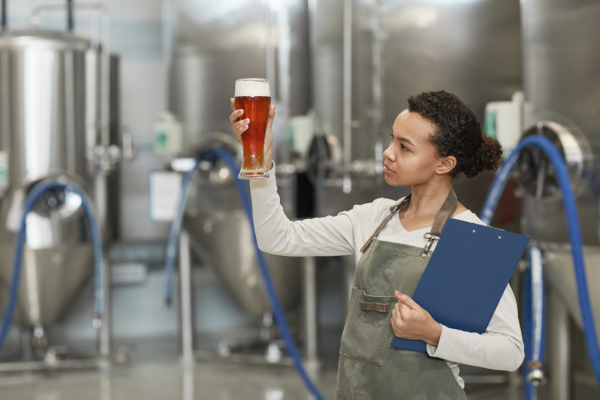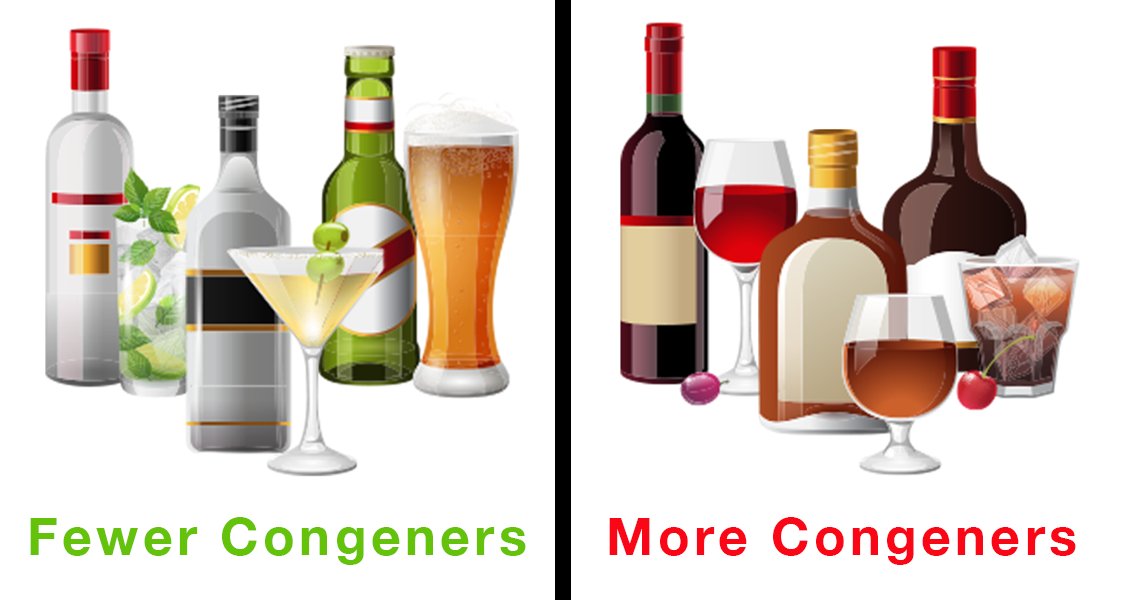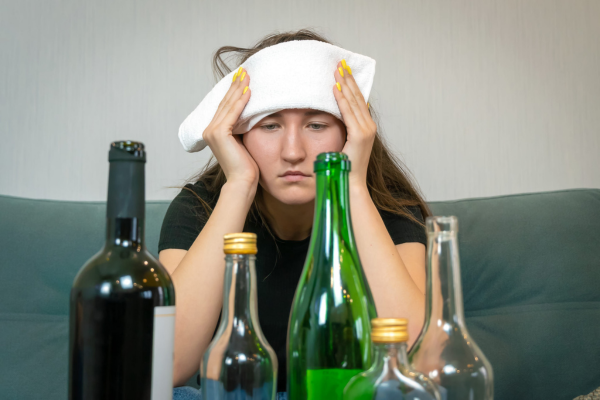
[ad_1]
The pursuit of keeping off a hangover is as previous as alcohol itself. Historical Romans swore via fried canary and sheep’s lungs, whilst the Irish recommended burying your self in rainy sand as much as your neck. However one offender that comes to no added price or possibility of bathroom lung has a tendency to resurface across the vacations: congeners in alcohol.
What are they? Does eating beverages low in congeners if truth be told paintings? Or is that this an previous (and most probably hungover) other halves’ story? Let’s check out what the science says.
What Are Congeners?
When grapes or grain are fermented, they produce alcohol — together with byproducts referred to as congeners. Those come with chemical substances like methanol, acetone, and tannins, which give a contribution to the colour, odor, and style of an alcoholic beverage, says Gillian Teitz, MS, a biochemist and host of the dependancy science podcast Sober Powered.
What Alcohols Have The Maximum Congeners?
Mild-colored alcohols include fewer congeners. Examples come with:
- Vodka
- Gin
- Rum
- White wine
- Mild beers
Darkish-colored alcohols include extra congeners. Those come with:
- Bourbon
- Whiskey
- Crimson wine
- Darkish beers
What Reasons Hangovers?
Right here’s a reality worthy of a spit take: Scientists nonetheless don’t absolutely perceive what reasons a hangover. It kind of feels a bit of loopy whilst you believe the familiarity of hangover signs — nausea, headache, fatigue, nervousness, shakiness, and low prayers for dying.
An early principle — dehydration — is now thought to be a separate symptom of an evening of over the top consuming. Even if alcohol is a diuretic (components that build up urine manufacturing), some research discovered that individuals who skilled hangover signs weren’t dehydrated.
The present prevailing clarification comes to alcohol metabolism. Once we devour alcohol (a.okay.a. ethanol), the frame’s first precedence turns into breaking it down and getting rid of it from the frame. To start with, the liver turns ethanol right into a substance referred to as acetaldehyde, which is assumed to be 10 to 30 occasions extra poisonous than alcohol. Acetaldehyde is then damaged down into risk free acetate and water, which is eradicated via urine.
How Do Congeners Have an effect on Hangovers?
The speculation continues: The longer alcohol and acetaldehyde stay within the frame, the extra harm they are able to do, and the more serious your hangover will likely be. Congeners are believed to compete with ethanol for the frame’s processing bandwidth, and this can lead to alcohol putting round longer whilst congeners are damaged down, says Teitz.
Some research have discovered that high-congener drinks may cause worse hangovers than low-congener drinks.
“It may be concluded that alcoholic beverages that include extra congeners produce extra critical alcohol hangovers,” wrote authors of a evaluation of research within the magazine Alcohol and Alcoholism. “Additionally, a contemporary survey confirmed it takes fewer high-congener beverages to get a hangover, whilst on the identical time the severity of those hangovers is maximum pronounced.”
It’s all in regards to the alcohol
So, to steer clear of a hangover, simply keep on with low-congener beverages? Excellent success discovering a health care provider or scientist who will suggest it. Professionals are beautiful unanimous: The largest contributor to a hangover isn’t congeners. It’s alcohol itself.
“Should you drink sufficient alcohol, you’re going to get a hangover,” says Teitz. “Whilst the quantity of congeners provide would possibly fairly irritate a hangover, a hangover is brought about via the volume of alcohol you may have ate up.”
“The few experimental research point out that the easiest congener beverage (bourbon) ends up in extra critical hangover rankings than does the beverage with necessarily no congeners (vodka),” wrote authors of a evaluation of study printed in Present Drug Abuse Opinions. “Even if, ethanol results according to se had a significantly more potent impact on hangover than did congener content material.”
Finally, it’s basically alcohol, now not congeners, that reasons essentially the most bothersome bodily results we go along with hangovers: It may possibly aggravate your abdomen (resulting in nausea or different GI dissatisfied), can affect blood sugar stability (making you’re feeling susceptible or shaky), and will give a contribution to bodywide irritation and sleep disruption (which may make you’re feeling fatigued, achy, or simply usually awful).
How Do You Steer clear of A Hangover?
With regards to everybody who’s tied on one too many has an offer on steer clear of a hangover after overindulging. Those can vary from fundamental (simply drink water!) to relatively elaborate. For instance, Best Chef host Padma Lakshmi swears via a pre-bedtime ritual of one,000 mg of Diet C, one liter of water, and an egg-and-cheese sandwich.
However, in keeping with clinical science, the legitimate solution is that this: There’s no trickery that may rescue you. “In different research, no efficient means of hangover prevention was once discovered,” mentioned Daniel Ok. Corridor-Flavin, MD, an dependancy psychiatrist on the Mayo Health center. “The one positive option to save you a hangover is to drink sparsely or now not drink in any respect.”
How the professionals outline moderation: Not more than two alcoholic beverages an afternoon for males and no a couple of for ladies.
Consistent with the Cleveland Health center, one drink is an identical to:
- 12 oz. of standard or gentle beer; roughly one can (5% alcohol)
- 8 to 9 oz. of malt liquor or many sorts of craft beers; about part a pint glass (7% alcohol).
- 5 oz. of desk wine; about one glass (12% alcohol).
- 1.5 oz. of liquor; roughly one shot (40% alcohol).
“The most efficient factor you’ll be able to do to steer clear of a hangover is to drink much less alcohol,” says Teitz, “or weigh the professionals and cons and make a decision that the hangover is worthwhile.”
[ad_2]




